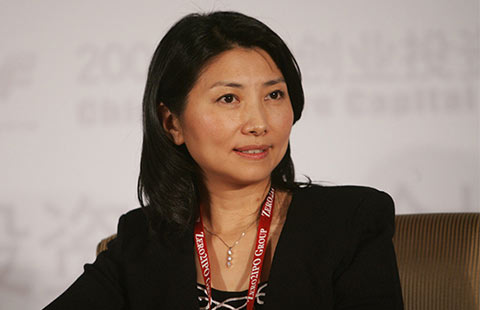China mulls major IPO reform to ease funding difficulties
(Xinhua) Updated: 2015-12-10 15:44BEIJING - The State Council, China's cabinet, passed a draft document in favor of registration-based stock listing reforms on Wednesday, which experts say should help ease funding difficulties of companies.
If passed, stock listing would shift from an approval-based system to a registration-based one within two years.
"Under the current initial public offering (IPO) system, new shares are subject to approval from the China Securities Regulatory Commission (CSRC), which controls both the timing and pricing. After the reform, the new IPO system will highlight information disclosure and let the market play a bigger role in determining prices," said Zhang Shuyu, a researcher with the University of International Business and Economics.
Although the document still needs to be ratified by the National People's Congress Standing Committee, the top legislature, experts believe it will be adopted soon. The amendment process has already been delayed due to this summer's capital market rout, which wiped out nearly $5 trillion in market value between June and August.
A more market-oriented system means simplified procedures as the bourses will take over IPO approval power, alleviating pressure from a backlog of more than 630 companies seeking approval as of Dec 3, according to the China Daily on Thursday.
The change is expected to improve the effectiveness of markets as a source of business financing. If the new system is adopted, regulators will no longer judge or endorse businesses based on performance, value and prospects, the CSRC said.
Media reported that the Shanghai Stock Exchange has already hired IPO review and approval experts in anticipation of the change.
However, according to widespread expert opinion, implementation of the registration-based system would be gradual, with the securities watchdog still managing the IPO supply in the early stages.
Even if the new IPO mechanism results in a flood of new listings, competitive small companies with growth potential will survive the short-term shockwave on valuations, Gao Ting, head of China strategy at UBS Securities Co, was quoted in the China Daily as saying.
In the long run, the new system will make the fundraising process much easier for companies, according to Gao.
Analysts from Everbright Securities and Fortune Securities said the market-driven IPO reform would lead to a long-term bull market as it could help address the imbalance between supply and demand and reduce rent seeking by regulators.
Chinese President Xi Jinping stressed the creation of a stock market with sound financing, regulation and investor protection at a meeting of the Central Leading Group for Financial and Economic Affairs on Nov 10.
In the same month, the CSRC introduced significant changes to IPO procedures, allowing investors to subscribe without paying into escrow accounts in advance. The changes prioritized information disclosure rather than pre-IPO approvals and simplified procedures for smaller IPOs.
Phasing out approval-based IPO listings and implementing a registration-based system was a highlight of the CSRC's annual work conference this year and was listed as a major task in the cabinet's economic reform plan for 2015.
- Construction of huge petrochemical plant begins in Dalian
- China mulls major IPO reform to ease funding difficulties
- Internet tycoons on World Internet Conference
- Government work group steps in Shanshui Cement offices
- London property company Savills plans office in Wuhan
- Urban disposable income to quadruple by 2030: ANZ Bank
- Jiangsu province opens trade, economic office in coastal Cambodia
- PSBC kick-starts plan to boost coffers
















